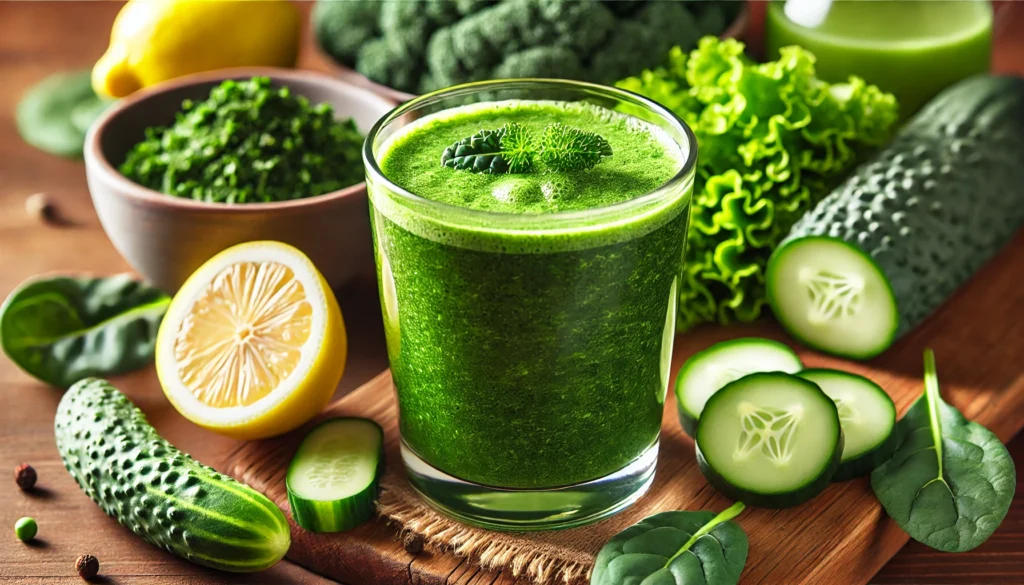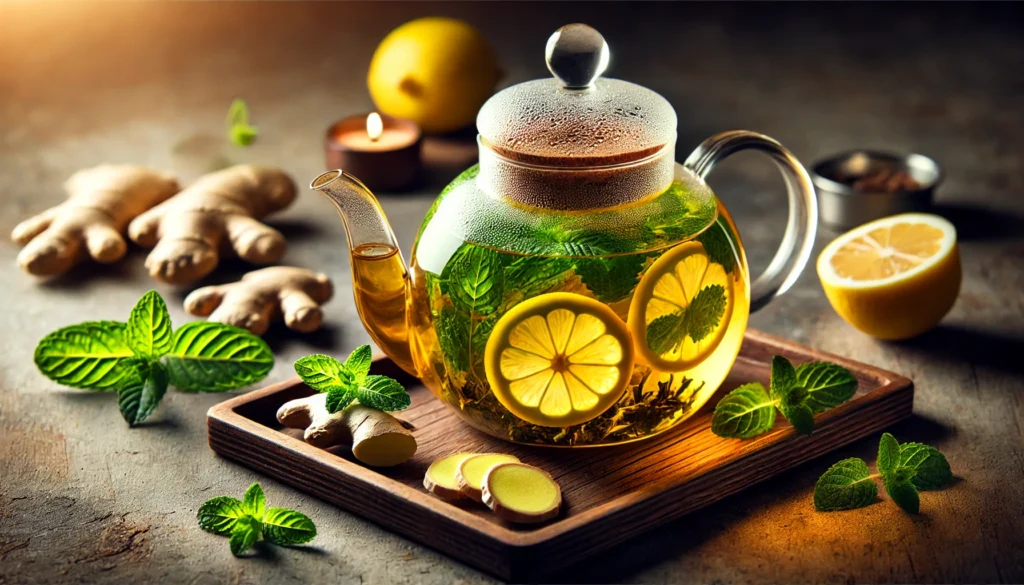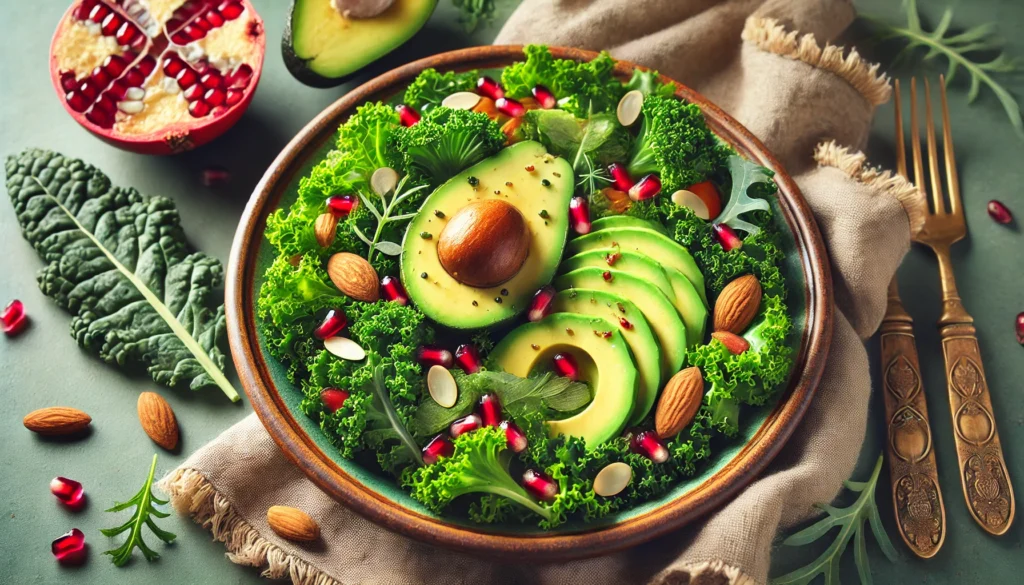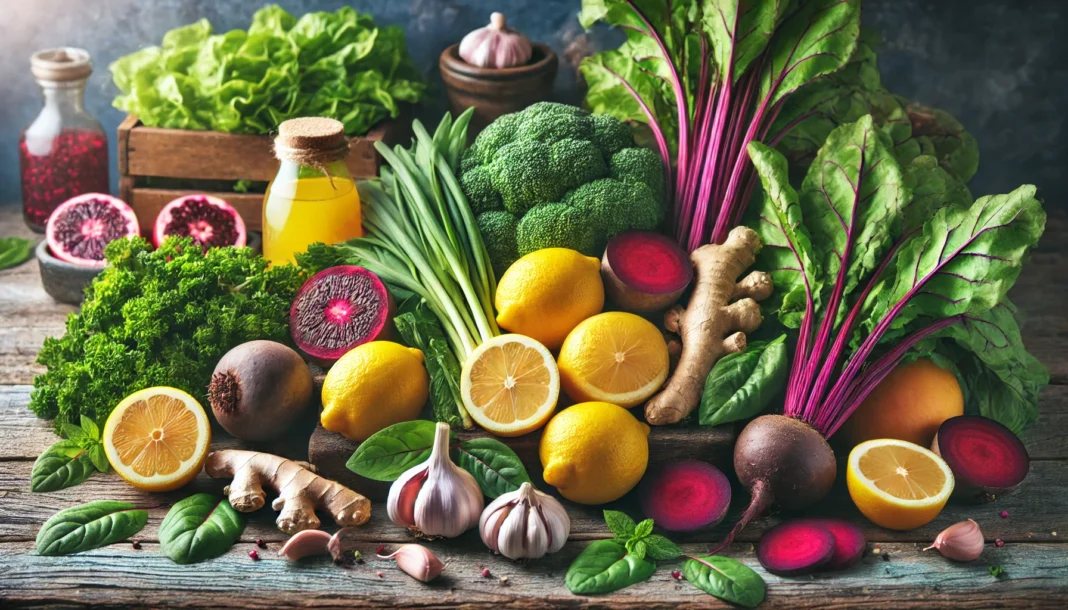Understanding Detoxification: The Body’s Natural Cleansing System
Detoxification is a vital biological process that allows the body to eliminate toxins, metabolic waste, and harmful compounds accumulated from food, environmental pollutants, and lifestyle choices. The human body has an intrinsic ability to detoxify itself through the liver, kidneys, digestive system, skin, and lungs. However, in today’s world, where processed foods, chemicals, and stress can overload these systems, supporting natural detoxification becomes increasingly important. Understanding how to detox your body efficiently requires a combination of targeted nutrition, hydration, and lifestyle strategies.
The liver plays a central role in detoxification, processing toxins into less harmful substances that can be excreted. Kidneys filter blood, removing waste through urine, while the skin and lungs assist in toxin elimination through sweating and respiration. The digestive system, particularly the gut microbiome, also plays a crucial role in detoxification, breaking down and expelling harmful substances. Certain fruits for gut health, such as bananas and papayas, aid digestion and promote a balanced microbiome.
The best way to detox your body in 24 hours or over an extended period involves a combination of nutrient-rich foods, sufficient hydration, and mindful practices. A full body cleanse detox at home is achievable by integrating cleansing foods, increasing fiber intake, and avoiding substances that burden the body’s natural detoxification pathways. This approach not only removes toxins but also enhances overall well-being, boosting energy, improving digestion, and supporting mental clarity.
You May Also Like: Functional Strength Training: The Key to Mobility, Power, and Everyday Performance
The Role of Nutrition in Detoxification
Food plays a crucial role in detoxification, supplying essential vitamins, minerals, and antioxidants that aid in the elimination of harmful compounds. A diet rich in natural detox foods supports the liver, kidneys, and digestive system while reducing the toxic load from processed foods, additives, and pollutants. The key to an effective detox lies in selecting whole, unprocessed foods that promote cleansing and nourishment. A well-structured clean food list can help guide healthy dietary choices, ensuring optimal nutrition while reducing toxin exposure. Choosing the right natural foods can make a significant difference in supporting the body’s detoxification processes.
Leafy greens such as kale, spinach, and Swiss chard are among the most powerful body cleansing foods due to their chlorophyll content, which aids in detoxification by binding to toxins and facilitating their removal. Cruciferous vegetables, including broccoli, Brussels sprouts, and cauliflower, contain sulfur compounds that enhance liver function and boost the body’s ability to detoxify harmful substances. Raw food detoxification can further enhance these benefits by preserving vital enzymes and nutrients essential for cleansing. A diet rich in raw greens provides optimal support for the body’s natural detox processes.
Fruits, particularly those high in vitamin C, such as lemons, oranges, and berries, play a crucial role in detoxification. Vitamin C acts as a potent antioxidant, neutralizing free radicals and supporting the liver’s enzymatic processes. Apples, rich in pectin, help to bind toxins in the intestines, facilitating their excretion. Hydrating fruits like watermelon and cucumbers also support kidney function, helping to flush out toxins through urine. A fruit and vegetable diet is a great way to support detoxification while ensuring an abundance of essential nutrients. These natural foods provide fiber, hydration, and antioxidants that help cleanse the body.
Protein is another critical component of detoxification, as amino acids are essential for liver function and the elimination of waste products. Clean protein sources such as organic eggs, wild-caught fish, and plant-based options like lentils and quinoa provide the necessary building blocks for detoxification enzymes. Consuming adequate protein prevents muscle breakdown during detoxification while maintaining metabolic balance.
Healthy fats also contribute to detoxification, as they support cell membrane integrity and hormone production. Avocados, nuts, seeds, and cold-pressed olive oil provide anti-inflammatory benefits and enhance nutrient absorption. Omega-3 fatty acids, found in flaxseeds, walnuts, and fatty fish, reduce inflammation and support liver function, making them essential for a complete body detox.

Hydration: The Key to Efficient Detoxification
Water is essential for detoxification, facilitating the transport of nutrients and the elimination of waste. Hydration supports kidney function, aiding in the filtration of toxins and preventing dehydration, which can slow down detox processes. Drinking enough water throughout the day helps maintain optimal circulation, allowing cells to function efficiently and remove metabolic waste. Detox water blends can provide additional benefits by enhancing hydration while infusing the body with vitamins and minerals. Certain combinations, like lemon and cucumber, support digestion and weight loss.
Lemon water is a simple yet powerful way to enhance detoxification. The combination of water and lemon provides hydration and a natural source of vitamin C, which supports liver function and improves digestion. Drinking warm lemon water in the morning stimulates bile production, which aids in the breakdown of fats and the removal of toxins. Apple cider vinegar is another popular detox aid, known for its ability to support digestion and balance pH levels. Incorporating it into a cleanse can help flush out toxins and improve gut health.
Herbal teas also support detoxification by providing hydration and bioactive compounds that promote liver health. Dandelion tea, for example, acts as a diuretic, encouraging toxin elimination through urine. Green tea contains catechins, powerful antioxidants that enhance liver function and protect cells from damage. Ginger tea supports digestion and reduces inflammation, making it an excellent addition to a detox regimen. Learn more about the best detox drinks to help cleanse and rejuvenate your body.
Coconut water and electrolyte-rich beverages replenish minerals lost during detoxification. Potassium, magnesium, and sodium balance hydration levels and prevent fatigue, ensuring the body can efficiently eliminate toxins. Including hydrating foods, such as cucumbers, celery, and watermelon, further supports the body’s natural cleansing processes. Certain detox juices can aid both in cleansing the body and supporting weight loss goals. Choosing the right juice combinations enhances hydration and nutrient absorption.

Lifestyle Strategies to Enhance Detoxification
Beyond diet and hydration, lifestyle choices play a crucial role in detoxification. Engaging in activities that promote circulation, sweating, and relaxation enhances the body’s ability to remove toxins. Regular physical activity stimulates the lymphatic system, which transports waste products away from tissues and into the bloodstream for elimination.
Saunas and steam baths promote sweating, which helps remove heavy metals and other toxins from the skin. Infrared saunas, in particular, penetrate deep into tissues, increasing circulation and enhancing detoxification at a cellular level. Dry brushing, a technique that involves brushing the skin with a natural bristle brush, stimulates lymphatic drainage and improves circulation. Following a proper skin detox routine enhances the elimination of toxins.
Sleep is another essential component of detoxification, as the body undergoes repair and regeneration during rest. The brain’s glymphatic system, responsible for clearing waste products, is most active during deep sleep. While resting, antioxidants play a crucial role in neutralizing free radicals that accumulate in the body. This natural process helps maintain cognitive function and overall well-being.
Reducing exposure to environmental toxins is equally important in a detox strategy. Choosing organic produce, using natural cleaning products, and minimizing plastic exposure help reduce the intake of harmful chemicals. Air purifiers and houseplants such as aloe vera and peace lilies can improve indoor air quality, reducing toxin buildup in the body.

Frequently Asked Questions (FAQ) About Detoxification and Cleansing
1. What is the best way to detox your body in 24 hours?
The best way to detox your body in 24 hours is to focus on hydration, nutrient-dense foods, and activities that stimulate detoxification pathways. Begin the day with warm lemon water to activate digestion and liver function, followed by a breakfast rich in fiber and antioxidants, such as a smoothie with berries, spinach, and flaxseeds. Throughout the day, include cleansing foods like cruciferous vegetables, garlic, and citrus fruits, which help flush out toxins. Engage in movement—such as brisk walking or yoga—to promote circulation and lymphatic drainage. Additionally, prioritize sleep, as the brain’s glymphatic system actively removes waste while you rest, making it a crucial component of a total body detox.
2. How can you cleanse your body without restrictive fasting or extreme diets?
A full body cleanse detox at home does not require starvation or extreme detox programs; instead, it involves optimizing your daily habits to support natural detoxification. Eating whole, unprocessed foods, increasing fiber intake, and eliminating inflammatory substances like alcohol and refined sugar can effectively cleanse your body over time. Hydration plays a key role, as water flushes out toxins through the kidneys and intestines. Additionally, supporting gut health with probiotic-rich foods such as yogurt, kimchi, and sauerkraut enhances digestion and promotes toxin elimination. Incorporating herbs like turmeric and milk thistle can further support liver function and aid in a sustainable, long-term detox strategy. Avoiding certain foods while detoxing is equally important, as processed and sugary foods can slow down cleansing efforts. Learning which foods to eliminate can make a detox more effective.
3. What foods should you eat when detoxing?
When detoxing, prioritize detox foods that enhance liver function, improve digestion, and promote toxin elimination. Leafy greens like kale and arugula contain chlorophyll, which binds to heavy metals and facilitates their removal. Fiber-rich foods such as chia seeds, oats, and apples help cleanse the digestive tract by promoting regular bowel movements. Healthy fats, including avocados and walnuts, support cell repair and reduce inflammation. Hydrating foods like cucumbers, watermelon, and celery assist in kidney function, ensuring toxins are efficiently flushed from the body. The lemon and cayenne cleanse is a well-known detox method that enhances digestion and boosts metabolism. This combination supports liver function and helps the body eliminate impurities more efficiently.
4. How long does a detox cleanse last, and what are the signs that it’s working?
A detox cleanse can last anywhere from a one day cleanse to several weeks, depending on the approach and individual health goals. Signs that a detox is working include increased energy levels, clearer skin, improved digestion, and better mental clarity. Some people may initially experience mild symptoms like headaches or fatigue due to the release of stored toxins, but these effects typically subside as the body adjusts. Over time, improved gut health, reduced bloating, and balanced hormones indicate that the body’s detoxification systems are functioning optimally. To sustain these benefits, it’s crucial to maintain a diet rich in natural detox foods beyond the initial cleanse period.
5. What should a person detox first when starting a cleanse?
When beginning a cleanse, it’s best to start with the digestive system since it plays a fundamental role in toxin elimination. A well-functioning gut ensures that waste is properly excreted and prevents toxins from being reabsorbed into the bloodstream. Increasing fiber intake, drinking plenty of water, and consuming fermented foods help improve gut health and digestion. Next, focus on liver support by incorporating cleansing foods such as beets, garlic, and turmeric, which aid in breaking down toxins. Lastly, ensure proper kidney function by drinking herbal teas like dandelion or nettle, which promote urine production and toxin excretion. By addressing these systems in a logical sequence, a total body detox becomes more effective and sustainable.
6. How can you detox your cells naturally and support long-term cleansing?
Cellular detoxification involves reducing oxidative stress and supporting mitochondrial health through diet, hydration, and lifestyle choices. Antioxidant-rich foods such as blueberries, green tea, and dark leafy greens help neutralize free radicals that can damage cells. Hydration is critical for cellular function, as water facilitates the transport of nutrients and the removal of waste. Intermittent fasting can also promote autophagy, a process where cells remove damaged components and regenerate. Reducing exposure to environmental toxins—such as pesticides, air pollutants, and heavy metals—further supports cellular health. By maintaining these habits consistently, you can ensure long-term detoxification at a cellular level.
7. Can detoxing help with weight loss, or is it just about removing toxins?
While the primary goal of detoxing is to eliminate toxins, it can also support weight loss by improving digestion, reducing inflammation, and enhancing metabolism. Processed foods and excess sugar contribute to toxin accumulation and fat storage, so removing these from your diet can naturally lead to weight reduction. Many detox foods, such as leafy greens and lean proteins, support metabolic function and help the body burn fat more efficiently. Additionally, detoxification reduces bloating and water retention, making you feel lighter and more energized. However, for sustained weight loss, it’s important to combine detox strategies with long-term healthy eating and exercise habits.
8. What foods remove toxins from your body most effectively?
Some of the most powerful foods to help detox include cruciferous vegetables (broccoli, Brussels sprouts, and cabbage), which enhance liver detoxification, and citrus fruits (lemons, oranges, and grapefruit), which provide antioxidants and vitamin C. Garlic contains sulfur compounds that support liver function, while ginger improves digestion and reduces inflammation. Fiber-rich foods like flaxseeds and whole grains help bind and eliminate toxins through the intestines. Additionally, chlorophyll-rich foods like wheatgrass and spirulina assist in heavy metal detoxification, making them excellent choices for a total body detox.
9. How can you detox quickly if you’ve been exposed to excessive toxins?
If you need to detox your body quickly due to exposure to processed foods, alcohol, or environmental pollutants, focus on hydration, nutrient-dense meals, and movement. Drinking plenty of water and herbal teas helps flush toxins through the kidneys, while fiber-rich foods speed up digestion and prevent toxin reabsorption. A short, full body cleanse detox at home can include fresh vegetable juices, green smoothies, and anti-inflammatory meals to replenish essential nutrients. Engaging in light exercise and using a sauna can accelerate sweating, which helps eliminate toxins through the skin. Although a quick detox can provide temporary relief, adopting long-term habits ensures that your body remains resilient to toxic exposure.
10. What is the role of mental and emotional health in detoxification?
Detoxification is not just a physical process—it also involves mental and emotional well-being. Chronic stress increases cortisol levels, which can impair digestion, slow down liver function, and contribute to toxin accumulation. Engaging in stress-reducing activities such as meditation, deep breathing, and journaling can improve detoxification by balancing hormones and reducing inflammation. Emotional detoxification also involves letting go of toxic habits, relationships, or thought patterns that may be negatively affecting overall health. Incorporating mindful practices alongside cleansing foods ensures a holistic approach to detoxification that supports both the body and mind.
Conclusion: A Holistic Approach to Detoxification
Detoxification is not a one-time event but an ongoing process that requires dietary, lifestyle, and environmental considerations. By focusing on detox foods, adequate hydration, and supportive habits, individuals can enhance their body’s natural ability to cleanse itself. Understanding what a person should detox first and tailoring the approach to personal health needs ensures a sustainable and effective detox regimen.
Incorporating nutrient-dense foods, staying hydrated, and adopting supportive lifestyle practices create a comprehensive approach to detoxification. The best way to detox your body in 24 hours or over an extended period involves a combination of these strategies, ensuring long-term health and vitality. With mindful choices, individuals can optimize their detox pathways, improve energy levels, and support overall well-being.
natural body cleanse, best detox foods, detox diet plan, one-day detox, home detox strategies, liver detox support, how to cleanse naturally, clean eating for detox, effective detox methods, natural detoxification tips, body cleanse guide, top detox foods, total body cleanse, holistic detox methods, detoxification support, wellness detox strategies, how to remove toxins, detox hydration techniques, mindful detox approaches, detox-friendly lifestyle
Further Reading:
Detox diets for toxin elimination and weight management: a critical review of the evidence

